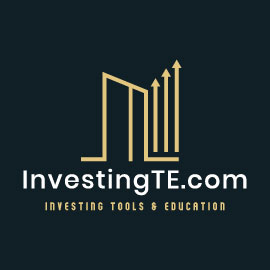How to Know If You’re Ready to Run Your Own Business

Many of us have applied focus to developing our own businesses.
So, how did you arrive to this decision?
Perhaps it was the passion for freedom, success, self development and your ability to lead.
Well – these are all great reasons to run your own business, but there is much more required than just these attributes.
- Are you ready to be the “end all” for everything purposeful in your business?
- Are you ready to be the catalyst of having others ‘buy-in’ to your mission (and change as and when necessary)?
Today’s, blog will be a brief overview of what it takes to have and lead a successful team.
Entrepreneurship and developing entrepreneurial skills go hand-in-hand.
My Experience

Reflection: I recall looking over my managers shoulder in my logistics role, saying to myself “I can do what he’s doing…I can manage this team.”
Although I was correct, I didn’t know half of the responsibilities required. Like many, I perceived the role to be much more simple than it was.
Very common from the person outside looking in!
Now, was I ready to perform the role when I thought I was ready to perform it? Hecky naw! I wasn’t! I needed pruning.
Self-Reflection Meets Passion

The good part was, I wasn’t afraid to ask questions and take chances of being vulnerable.
Through my aspirations, I learned by facing fears and being uncomfortable, I not only exceeded expectations, but I also began to learn myself much better.
This was a key component in my self-development.
Remember, when it comes to people, a key aspect of high level engagement, is your ability to identify, embrace, and create a journey for someone where one may not recognized that ability for themself.
Through results, I learned that confidence follows knowledge, knowledge follows information and the ability to accept and utilize the information delivered, follows trust.
Structure & Self-Awareness

The journey your team decides to follow you along is first sparked by trust. Trust is the first amongst many building blocks that support building a strong team.
That team is a reflection of you – remember that. At the time, although I had the ability to connect with people through my acquired social skills, I was new to learning a higher level of self awareness.
This meant knowing where and when my mindset was affecting my actions.
Although I had great leadership skills, in the beginning my trust level was low amongst people I didn’t know.
I had to transition myself from a self-sufficient top performer to showing others how to perform at the same level or better.
If you haven’t noticed, teaching challenges your comprehension of the information and it creates the ability to become a better teacher.
My road of self -development was not easy, but it was something I consistently reviewed. After review, I would revise my actions based upon my desired outcome.
Mindset is very important.
- All changes and devotion to self-development is mental first.
- Next is the acknowledgment of self and then a plan of action to self-improve.
- Conquer the needed change in your mind first; create an action plan, and force yourself to the change in your actions where applicable.
- Monitor your results.
- Review and recalibrate your actions over time for the desired result.
These applications will teach you how to acquire self-improvement so that you can later show someone else how to achieve self-improvement.
These applications formed me into a top-performing team builder with top performing team results.
Along my path of managing and supporting up to 400 people, I was referred to several books by respected associates in my industry.
What To Ask The Person in the Mirror by Robert Steven Kaplan and The Five Dysfunctions of a Team by Patrick Lencioni really resonated with me.
If you haven’t read these and you support a team, be sure to read them. What really resonated with me, was the building blocks of a top performing team from The Five Dysfunctions of a Team by Patrick Lencioni.
Building Blocks: Present In Every Top-Performing Team.

TRUST –
This is the base of all other building blocks to follow.
If trust is absent people will objectively remain invulnerable.
Being invulnerable does not create growth because when you’re guarded due to lack of trusting those around you, you cannot communicate at high levels.
CONFLICT –
Conflict is a result of good communication.
When people talk about their feelings related to an objective, there are common disagreements.
THIS IS HEALTHY contrary to what many people think due to fear.
Due to trust and communication, you can now face that fear of conflict and begin forming mutual agreements on best practices.
Those best practices could be inaccurate to begin with, or accurate to begin with, and either result doesn’t matter.
With the ability to address conflict, you now are able to recalibrate actions for better results by addressing conflict.
Understand, conflict is a broad category of events. Conflict happens amongst everyone at low or high levels.
The skill of addressing conflict can be very challenging, but you must create a plan and face it. Without facing it, your team will have artificial harmony.
Artificial harmony does not get you to the next level.
COMMITTMENT –
Every individual has a commitment to meet.
When commitment levels are low or high, there will be various results applicable to the commitment level of each individual.
When there is a lack of commitment, even though trust and conflict resolution is present, results are affected.
Team members will notice these results and connect them to what others are contributing.
When this commitment is addressed through conflict resolution, people will sometimes become ambiguous about their commitment.
Moreover, creating false devotion and the lack of commitment and/or teamwork. Ambiguity is not what you want when topics of commitment are in question.
ACCOUNTABILITY –
Being accountable for your commitments is the next required aspect you’d want each individual to take ownership of.
Being committed is one thing, but what if your results are poor?
Being accountable for those results are also commitments.
But if anyone is avoiding their accountability to these results, it affects the entire team.
Therefore, low standards or the avoidance of accountability is something that must be addressed. Expect high standards as well as high levels of accountability.
RESULTS –
Now, when all other aspects are present within the team, and results are given, results must be analyzed.
When all other functions are present, but results are poor to mediocre, sometimes we don’t want to own those results.
Deflection, inattention to results and sometimes our status and ego gets in the way of owning and being accountable for our results.
In times like this, you must review the finite details to allow you to notice the change needed to improve results.
Attention to your results may cause the need to recalibrate several functions throughout your operation.
Conclusion

These building blocks are key attributes in any successful team.
Throughout each of these functions or dysfunctions, success building needs to be apart of the business structure.
These building blocks are true gifts for others to acknowledge on their personal quests for self improvement.
Although, these building blocks are just a portion of running your business, they are very important.
Now just apply this to you other responsibilities of – Human Resources, Payroll, Recruiting, Loss Prevention, Finance, Accounting, Public Relations, Marketing, Sales etc…LOL
Keep it up faithful readers-future leaders! I commend you!
Hopefully this is helpful and aspiring to assist you along your quest. Love ya and keep up the good work!
Do you and your team own these characteristics? Please comment.
FREE Deal Analysis for Rental Property Calculator!
Our mission is to help others develop using our knowledge and services.
We cater to those looking to grow professionally.
Explore our tools, education and services.
